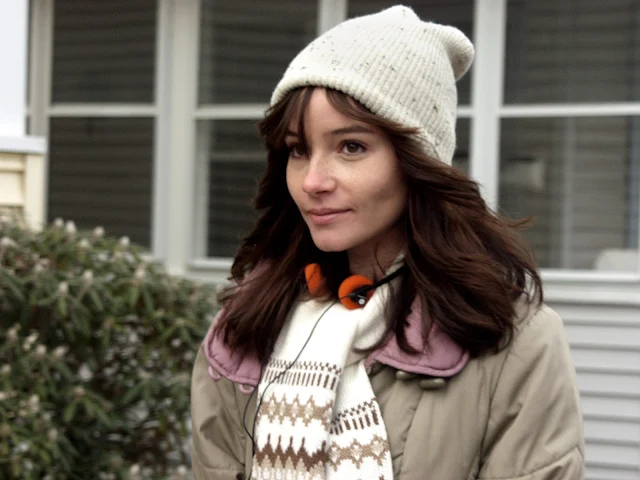 |
| Margot Robbie in Barbie |
Cast: Margot Robbie, Ryan Gosling, America Ferrera, Ariana Greenblatt, Rhea Perlman, Helen Mirren (voice), Will Ferrell, Michael Cera, Connor Swindells, Issa Rae, Kate McKinnon, Alexandra Shipp, Emma Mackey, Simu Liu, Kingsley Ben-Adir, Ncuti Gatwa, Scott Evans, John Cena, Dua Lipa. Screenplay: Greta Gerwig, Noah Baumbach. Cinematography: Rodrigo Prieto. Production design: Sarah Greenwood. Film editing: Nick Houy. Music: Mark Ronson, Andrew Wyatt.
For all the snarky cleverness of its screenplay, the brightness of its performances, and the liveliness of its direction, what is Barbie if not a 114-minute image ad for Mattel, Inc.? The movie allows the toymaker to look like a good sport by acknowledging its oft-criticized influence on young girls and its marketing mistakes, and by letting its management be portrayed as clueless males, with its CEO played by the master of cluelessness, Will Ferrell, while still raking in more money than ever. It's a masterpiece of corporate self-justification. The points the movie makes about the Barbie phenomenon (which became an even bigger phenomenon when its release date coincided with another blockbuster, resulting in the "Barbenheimer" meme), couldn't have been made without the participation of Mattel. Sure, you could make a movie satirizing the toy business, focusing on a girl doll laden with separately purchased accessory toys. You could call the doll something like Mitzi and give her a boyfriend called Bob, and you could call the company Rattel or Battel, and you could score all the same points with almost the same script and the same cast. But it wouldn't have the same sharply real edge. This is a movie that future analysts of American society in the 21st century are going to come back to when they examine childhood and capitalism and the role of the sexes in the year 2023. The story the movie tells is essentially the same as that of another toy that comes to life, Pinocchio. Except that when Pinocchio became a real boy, I'm pretty sure that he ran out to play. If Ken had been the one to become real, he probably would go out to shoot hoops or see his mates at the bar. When Barbie becomes a real woman, the first thing she does is visit a gynecologist. It's an ending that sums up the film's view of what it means to be a woman today.
.jpeg)

.jpeg)








